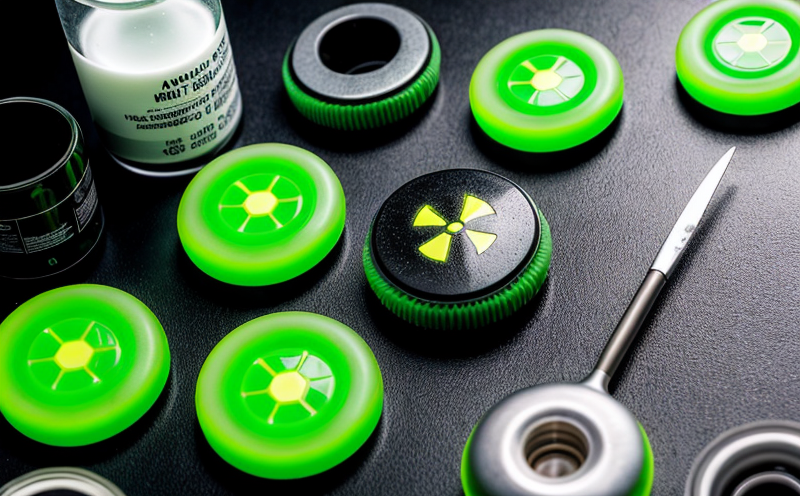EN 20615 Tritium Detection in Baby Drinks
The European Standard EN 20615 specifies a method for determining tritium content in baby drinks, which is crucial to ensure the safety and quality of these products. This standard applies particularly to infant formulae, liquid milks, and other similar beverages intended for infants under one year old. The primary aim of this testing is to protect public health by ensuring that the levels of tritium do not exceed safe limits set forth in international guidelines.
Tritium (hydrogen-3) is a radioactive form of hydrogen and can be found naturally in small amounts in water, air, and food. In some cases, it may also enter the human body through consumption of contaminated foods or drinks. While tritium has been used in various applications such as luminous signs and nuclear energy production, its presence in baby drinks poses a particular risk due to the vulnerability of infants' developing systems.
Testing for tritium follows strict protocols outlined in EN 20615. This includes sample preparation techniques like dilution or concentration based on expected activity levels, ensuring accurate measurement across different concentrations. The test utilizes sensitive detectors capable of measuring extremely low levels of radiation associated with tritium.
The standard also defines acceptance criteria that specify allowable limits for tritium in baby drinks. These limits are designed to minimize the risk posed by exposure to this substance while allowing for reasonable detection capabilities. Compliance with these standards is essential not only for regulatory reasons but also for maintaining consumer trust and ensuring product safety.
Performing EN 20615 Tritium Detection involves several key steps including sampling, preparation of samples, analysis using specialized equipment such as liquid scintillation counters or gas proportional counters, followed by interpretation of results according to specified guidelines. Laboratories conducting this type of testing must have appropriate accreditation and follow best practices outlined in the standard.
Accurate detection of tritium is vital for maintaining compliance with international health standards and ensuring product safety. By adhering to EN 20615, manufacturers can demonstrate their commitment to producing safe products free from excessive levels of radioactive substances that could harm infants.
Frequently Asked Questions
Eurolab Advantages
As a leading provider of food & feed testing services, Eurolab offers comprehensive and accurate EN 20615 Tritium Detection in Baby Drinks. Our team comprises highly experienced professionals who understand the nuances of this standard and can provide reliable results that meet all required specifications.
- We follow strict protocols for sample preparation to ensure consistent and reproducible measurements.
- Our state-of-the-art laboratories are equipped with advanced detection equipment capable of providing precise tritium levels down to very low concentrations.
- All our findings comply with the stringent acceptance criteria defined in EN 20615.
In addition, Eurolab provides detailed reports that not only state the results but also offer insights into potential risks and recommendations for improvement if necessary. Our services are supported by years of experience, ensuring high levels of accuracy and reliability.
Competitive Advantage and Market Impact
- Our proficiency in EN 20615 ensures compliance with international health standards, enhancing product safety and consumer trust.
- The precision of our results allows us to detect even minute amounts of tritium, providing valuable data for continuous improvement efforts within the industry.
By adhering strictly to this standard, Eurolab contributes significantly towards maintaining public health while also supporting manufacturers in meeting regulatory requirements. Our services play an important role in shaping market trends by setting benchmarks for what constitutes acceptable levels of tritium in baby drinks.
Use Cases and Application Examples
| Use Case/Example | Description |
|---|---|
| Baby Formula Manufacturer | A manufacturer wants to ensure that their product meets all international health standards regarding tritium content. |
| Distributor of Baby Drinks | A distributor needs verification that the products they distribute comply with EN 20615 requirements before selling them in various markets. |
- Infant formulae intended for infants under one year old.
- Liquid milks specifically formulated for infants and young children.





